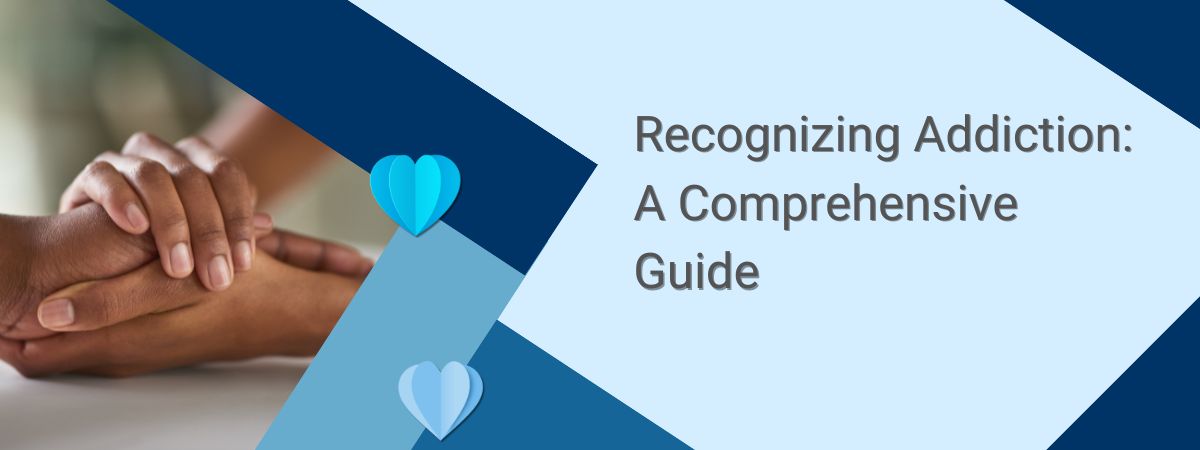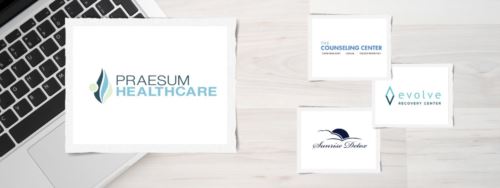

How to Recognize Addiction: A Guide for Families
At Sunrise Detox, we understand the devastating impact addiction has on families. It's not just the individual struggling with substance use; the entire family unit is thrown into a cycle of agitation and helplessness. This comprehensive guide aims to empower you, the family member, with the knowledge and tools to navigate the complex process of supporting your loved one through detoxification and into sustainable recovery.
Understanding Addiction: A Disease, Not A Moral Failing
First, it's crucial to recognize substance use disorders as chronic brain diseases, not attributable to a moral failing or a lack of willpower. Repeated substance use alters the brain's reward system, making it difficult to control cravings and resist using despite being confronted with the negative consequences. Understanding this underlying cause fosters empathy and a more supportive approach for families.
The Role of Detoxification in Recovery
Detoxification, often simply called "detox," is a medically supervised process of eliminating toxins, including drugs and alcohol, from the body. Medical detox is often a crucial first step in the overall treatment process after addiction signs. A Medical Detox Program is a structured and supervised process designed to help individuals safely withdraw from substances being abused, including drugs or alcohol, under the care of healthcare professionals.
It's important to note that while detoxification has a legitimate physiological basis, some detox programs or products promoted in popular culture may lack scientific evidence or may be based on unfounded claims. Before undertaking any detox program, it's advisable to consult with healthcare professionals to ensure that it is safe and appropriate for an individual's specific health needs.
Detox is a crucial first step in interrupting the physical dependence upon drugs or alcohol and alleviating withdrawal symptoms. However, it's important to understand that detox is just the beginning. It doesn't address the underlying psychological and behavioral factors that contribute to addiction.
Types of Detox Programs: Choosing The Right Fit
The most suitable detox program depends on the individual's specific needs and circumstances. The principal tried and tested method is Inpatient Detox, which provides a safe and controlled environment for individuals at risk of experiencing severe withdrawal symptoms or those lacking a strong support system at home.
Medical professionals closely monitor patients 24/7, ensuring their safety and comfort throughout the withdrawal process. Inpatient detox is typically recommended for individuals struggling with:
-
Opiate dependence
-
Benzodiazepine dependence
-
A history of relapses
It's important to note that the suitability of detox depends on various factors, including the severity of substance use, the presence of co-occurring disorders, and the individual's support system at home. Close communication between the family and healthcare professionals is crucial to ensure that the outpatient detox plan is safe and effective for the individual's specific circumstances.
Medical detox is often the crucial first step for a family in the overall treatment process of their loved ones. Sunrise Detox realizes how drug and alcohol use affects every member of your family.
We also realize that these difficulties often continue even if a loved one seeks a treatment program. We work hard to offer valuable detox services and information for families and guide them in discovering how to be there for a loved one in their time of need.
Once detox is completed successfully, individuals are typically encouraged to transition to further treatment, such as inpatient or outpatient rehabilitation programs, counseling, and therapy, to address the underlying causes of a substance use disorder.
Withdrawal Symptoms During Detox
People with substance use disorders usually experience uncomfortable withdrawal symptoms when they try to detox. Common withdrawal symptoms vary depending on the type of substance, the duration and severity of use, and individual factors such as overall health.
Here are common symptoms associated with the withdrawal from various substances:
Opioids (e.g., Heroin, Prescription Painkillers, Fentanyl, Methadone, Morphine, Codeine, Vicodin)
-
Early Withdrawal (6-12 hours after last use): Agitation, Anxiety, Muscle aches, Insomnia, Sweating
-
Peak Withdrawal (1-3 days): Diarrhea, Dilated pupils, Nausea and vomiting, Abdominal cramping, Rapid heartbeat
Benzodiazepines (e.g., Xanax, Valium, Ativan)
-
Early Withdrawal (1-4 days): Anxiety, Insomnia, Irritability, Tremors, Sweating, Headaches
-
Peak Withdrawal (2 weeks): Severe anxiety, Panic attacks, Increased heart rate, Nausea, Hypersensitivity to light and sound, Difficulty concentrating
Alcohol
-
Early Withdrawal (6-24 hours after last drink): Anxiety, Insomnia, Nausea and vomiting, Sweating, Shaky hands, Headaches
-
Peak Withdrawal (48 hours to a few days): Hallucinations, Seizures, Delirium tremens- “the DTs” (in severe cases), Increased heart rate and blood pressure, Confusion
Stimulants (e.g., Cocaine, Methamphetamines, Adderall)
-
Early Withdrawal (a few hours to several days after last use): Fatigue, Increased appetite, Depression, Disturbed sleep patterns
-
Peak Withdrawal (1-2 weeks): Intense drug cravings, Increased sleep, Slowed activity and movements, Increased appetite, Weight gain
Cannabis
-
Early Withdrawal (1-2 days after last use): Irritability, Anxiety, Insomnia, Loss of appetite
-
Peak Withdrawal (2 weeks to a month): Mood swings, Difficulty concentrating, Cravings for cannabis, Sleep disturbances
It's important to note that withdrawal symptoms can vary widely among individuals, and not everyone will experience the same ones or go through them with the same intensity. However, withdrawal symptoms can become dangerous, so no one should try to manage them without medical support.
What to Expect During Inpatient Detox at Sunrise Detox Centers
At Sunrise Detox, we prioritize the safety, comfort, and well-being of our patients throughout their detoxification journey. Sunrise Detox’s 10 locations throughout New Jersey, Georgia, Florida, New York, and Massachusetts offer a safe, comfortable medical detox from alcohol, opiates, and most prescription drugs.
The Sunrise Detox Difference: Committed to Your Loved One's Recovery
At Sunrise Detox Centers, we understand that addiction is a family disease. We are committed to providing compassionate and evidence-based care throughout the detoxification process. Our team of experienced professionals works closely with patients and their families across the recovery continuum to develop personalized treatment plans that address individual needs and support long-term recovery.
We offer a variety of detox programs across multiple locations, ensuring we can accommodate your loved one's specific needs. Our comfortable and secure facilities provide a safe haven for healing, while our dedicated staff offers 24/7 support and guidance. we make calls daily to each patient’s emergency contact to keep them informed with updates on how things are going and to reply to any questions.
Throughout your loved one’s time with us, our expert clinicians and caregivers offer tailored treatments and help them stay comfortable with safe, comfortable accommodations and nutritious meals.
Here's what you can expect when your loved one chooses one of our inpatient detox programs:
-
Medical Supervision: A team of experienced doctors and nurses will conduct a thorough medical assessment to determine the best course of treatment. They will closely monitor your loved one's health vitals, manage withdrawal symptoms through appropriate medications, and address any medical complications that may arise.
-
Individualized Treatment Plans: We understand that addiction is not a one-size-fits-all disease. Our treatment plans are customized to address each patient's unique needs based on the type of substance used, duration of use, severity of withdrawal symptoms, and any co-occurring medical or mental health conditions.
-
24/7 Monitoring: Our dedicated staff provides continuous monitoring around the clock to ensure your loved one's safety and well-being. This includes regular vital sign checks, medication administration, and assistance with daily needs.
-
Comfortable and Secure Environment: We strive to create a calm and comfortable environment that facilitates healing. Private rooms, nutritious meals, and access to relaxation activities promote a sense of security and well-being during this challenging time.
-
Support for Families: We understand your concerns and anxieties. Our social workers will keep you informed about your loved one's progress, answer your questions, and provide support resources to help you navigate this difficult phase. This may include support groups for families of those struggling with addiction.
Supporting Your Loved One During Detox
While your loved one undergoes detox, your role as a family member is pivotal to their recovery journey. Here are some ways you can offer support:
-
Educate Yourself: Knowledge is power, never more poignantly so than during recovery from substance use disorders. Research addiction and the detox process to better understand what your loved one is experiencing. This can help you manage expectations and remain patient throughout the process. Reputable sources include the National Institute on Drug Abuse (https://www.nih.gov/about-nih/what-we-do/nih-almanac/national-institute-drug-abuse-nida) and the Substance Abuse and Mental Health Services Administration (https://www.samhsa.gov).
-
Communicate Open and honest communication is vital. Practice active listening and express your love and support without judgment. Let your loved one know you're there for them every step of the way. Validate their struggles and avoid criticizing their past actions that may have been factors in the progression of the substance use disorder.
-
Focus on Encouragement: Detox can be physically and emotionally challenging. Offer words of encouragement and celebrate their milestones, no matter how small.
-
Take Care of Yourself: Remember, you can't pour from an empty cup. Prioritize your own well-being by engaging in self-care activities that reduce stress and allow you to be a stronger support system for your loved one. Consider joining a support group for families of those struggling with addiction.
-
Prepare for Aftercare: Detox is only the first step. Engage with the clinical detox team to explore further treatment programs, including therapy options and support groups, to help your loved ones continue their recovery journey after detox is complete.
Beyond Detox: Building a Foundation for Lasting Recovery
Detoxification is a critical first step, but it's just the beginning of the recovery journey. Following detox, individuals typically transition into addiction treatment programs that address the underlying causes of substance use and equip them with the tools to prevent relapse. Here's an overview of what to expect:
Assessment and Evaluation
A comprehensive assessment will be conducted to understand the individual's overall physical and mental health, addiction history, and any co-occurring disorders. This information forms the basis for creating a personalized treatment plan.
Addiction Treatment Options
Various evidence-based treatment approaches can be incorporated into the recovery program. Some common options include:
-
Individual Therapy: Provides a safe space for individuals to explore the root causes of their addiction, develop coping mechanisms, and address underlying emotional issues.
-
Group Therapy: Connects individuals with others who are on similar recovery journeys, fostering a sense of community, support, and accountability.
-
Family Therapy: Helps families learn how to communicate effectively, address enabling behaviors, and support their loved one's recovery in a healthy way.
-
Behavioral Therapies: Techniques like cognitive-behavioral therapy (CBT) help individuals identify and change negative thought patterns and behaviors that contribute to addiction.
-
Medication-Assisted Treatment (MAT): For certain substances like opioids and alcohol, medication can be combined with therapy to manage withdrawal symptoms, and cravings, and prevent relapse.
The Importance of Family Involvement in Recovery
Research shows that family involvement significantly improves the chances of long-term recovery. Here are some more helpful ways you can continue to support your loved one during addiction treatment:
-
Attend Family Therapy Sessions: Actively participate in family therapy sessions to learn healthy communication skills, address family dynamics that may have contributed to addiction, and establish boundaries that support recovery.
-
Join a Support Group: Support groups for families of those in recovery provide a safe space to share experiences, learn from others, and receive encouragement.
-
Encourage Healthy Habits: Support your loved one's efforts to develop healthy habits and a balanced lifestyle. This may include regular exercise, healthy eating, and engaging in activities they enjoy.
-
Practice Patience and Relapse Prevention: Recovery is not a linear process. There may be setbacks and relapses along the way. Practice the 12-step virtues of tolerance and patience, offering the unwavering support of the family, and work together with your loved one to develop a relapse prevention plan.
We're Here to Help: Take the First Step Today
If you or a family member is struggling with addiction, don't hesitate to seek help. Sunrise Detox is here to support you and your family on this journey. Contact us today at 866-989-4006 for a free and confidential consultation. Our compassionate team can answer your questions, discuss treatment options, and help you get your loved one on the road to recovery. We respond promptly, no matter the day or time. Remember, you are not alone.



